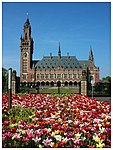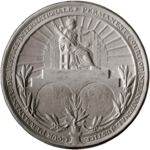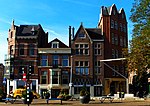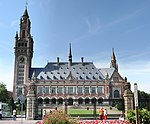Laan van Meerdervoort
Streets in The Hague

The Laan van Meerdervoort (Dutch pronunciation: [ˈlaːɱ vɑˈmeːrdərvoːrt]) is an avenue in The Hague. At a length of 5.8 km, it is (as of 2011) the longest avenue in the Netherlands.The Laan van Meerdervoort is more or less an isogloss of two subvarieties of The Hague dialect. The posher variety called dàftig, Haegs or bekakt Haags is spoken roughly north of it, whereas a low-class variety called plat Haags or Hèègs is spoken roughly south of the Laan van Meerdervort.
Excerpt from the Wikipedia article Laan van Meerdervoort (License: CC BY-SA 3.0, Authors, Images).Laan van Meerdervoort
Laan van Meerdervoort, The Hague Scheveningen
Geographical coordinates (GPS) Address Nearby Places Show on map
Geographical coordinates (GPS)
| Latitude | Longitude |
|---|---|
| N 52.0834 ° | E 4.2911 ° |
Address
Gymnasium Haganum
Laan van Meerdervoort 57
2517 AG The Hague, Scheveningen
South Holland, Netherlands
Open on Google Maps









